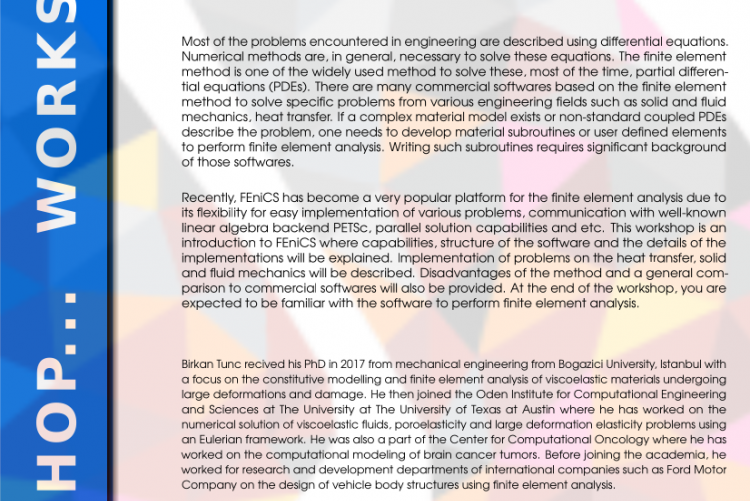Most of the problems encountered in engineering are described using differential equations. Numerical methods are, in general, necessary to solve these equations. The finite element method is one of the widely used method to solve these, most of the time, partial differential equations (PDEs). There are many commercial softwares based on the finite element method to solve specific problems from various engineering fields such as solid and fluid mechanics, heat transfer. If a complex material model exists or non-standard coupled PDEs describe the problem, one needs to develop material subroutines or user defined elements to perform finite element analysis. Writing such subroutines requires significant background of those softwares.
Recently, FEniCS has become a very popular platform for the finite element analysis due to its flexibility for easy implementation of various problems, communication with well-known linear algebra backend PETSc, parallel solution capabilities and etc. This workshop is an introduction to FEniCS where capabilities, structure of the software and the details of the implementations will be explained. Implementation of problems on the heat transfer, solid and fluid mechanics will be described. Disadvantages of the method and a general comparison to commercial softwares will also be provided. At the end of the workshop, you are expected to be familiar with the software to perform finite element analysis.
Engineering Faculty Building room B410

